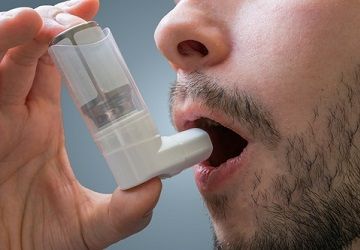Study Links Dental Problems to Asthma Medications
When the results were analyzed, it was found that asthmatic patients had a higher degree of dental erosion compared to non-asthmatic patients, but there was no significant relationship found between dental erosion and gender or the type of inhaler each patient used.
, up to 7.4 percent of adults in the United States are living with asthma, a chronic inflammatory condition characterized by spasms and swelling of the airways. The number of children suffering from the condition is estimated at 8.6 percent of the population. Asthma patients are often prescribed either a metered dose inhaler or a dry powder inhaler, but the use of these drugs often has an unintended side effect: dental erosion and dentin hypersensitivity.
To better examine the impact these types of medications have on asthmatic patients’ teeth, researchers at the University of Medical Sciences and Technology, Sudan began a study to measure the severity of dental erosion among adults with asthma. The study was arranged according to gender as well as by the type and duration of asthma medication used. Participants in the study were selected from a pool of patients admitted to a short-stay unit in a hospital following an acute asthma attack.
The research team presented each patient with a structured interview-based questionnaire that included questions about each person’s demographic data and medical history. Measurement of dental erosion was carried out using the Basic Erosive Wear Examination. The patients were also tested for dentin sensitivity using a Visual Analog Scale to capture the intensity of their feelings along with sensations like pain, which cannot be measured directly. Patients were asked to rate their perception of pain after retaining ice water in their mouths for 20 seconds.
When the results were analyzed, it was found that asthmatic patients had a higher degree of dental erosion compared to non-asthmatic patients, but there was no significant relationship found between dental erosion and gender or the type of inhaler each patient used. The asthmatic patients were also found to have a higher degree of dentin sensitivity compared to non-asthmatics.
Since the number of people living with asthma has grown in the last century, it is important for dentists to remain alert when examining and treating these patients. Dental vigilance is important for the reduction and prevention of dental erosion. Treatment should include appropriate referrals to dental professionals and patient education regarding proper oral healthcare techniques.
ACTIVA BioACTIVE Bulk Flow Marks Pulpdent’s First Major Product Release in 4 Years
December 12th 2024Next-generation bulk-fill dental restorative raises the standard of care for bulk-fill procedures by providing natural remineralization support, while also overcoming current bulk-fill limitations.
